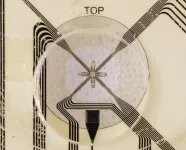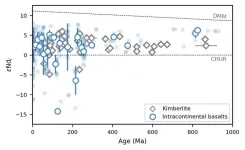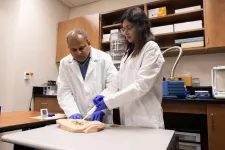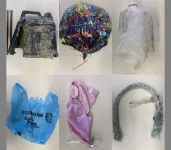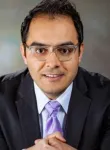(Press-News.org) A new paper published today in Science Advances exposes the global aquaculture sector’s growing dependence on wild fish. Despite industry claims to the contrary, these findings highlight how the growing appetite for expensive farmed salmon can leave coastal communities struggling to access affordable local fish like sardines and anchovies. Instead, these small pelagic fish are frequently caught, processed, and “reduced” to fishmeal and fish oil, almost all of which is used to feed farmed fish. These ‘reduction fisheries’ account for 26% of global ocean catch.
“As the aquaculture industry grows, so does its dependence on wild fish,” said Dr. Kathryn Matthews, Oceana Chief Scientist and one of the authors of the paper. “The continued rapid expansion of the sector will demand ever more fishmeal and fish oil, even as its use in feed becomes more efficient.”
The authors, which also include Dr. Patricia Majluf, Associate Professor with the Center for Environmental Sustainability at the Cayetano Heredia University and former Oceana Vice President in Peru; Dr. Daniel Pauly, Oceana Board Member, fisheries scientist, and principal investigator at Sea Around Us; Oceana Senior Analyst Dr. Daniel Skerritt; and Dr. Maria Lourdes D. Palomares, Senior Scientist and Research Unit Manager at Sea Around Us, debunk the industry’s use of the “Fish-in-Fish-out” (FIFO) ratio – the standard metric used to quantify how much wild fish is used to produce farmed fish. The FIFO ratio is often used as an indicator of the impact of aquaculture on wild fish stocks.
In the paper, the authors showcase several misleading practices about the FIFO ratio, such as averaging fishmeal and fish oil inputs of carnivores and herbivores together to conceal the high feed requirements of carnivorous species. This lowers the FIFO ratio, reaffirming the aquaculture industry’s claim that its dependence on fish oil and fishmeal is decreasing. But fish oil, especially, is a limited commodity that is increasingly in demand by salmon farms, which now supply 70% of all salmon consumed worldwide. In 2020, farmed Atlantic salmon alone accounted for 60% of fish oil usage, the authors calculated.
“The salmon industry is a not a food production system – it’s a food reduction system. It benefits the few who can afford it, but reduces access to nutritious fish for those who need it the most,” said Dr. Matthews.
For example, processing plants in West Africa are exploiting vast amounts of small pelagic, highly nutritious fish, mostly sardinella, to produce fishmeal and fish oil for export. “This is an equity issue – it puts local fishmongers at an unfair disadvantage because they cannot compete with the prices the plants are willing to pay for this global commodity,” Dr. Skerritt said.
Additionally, the authors note the turbulent future ahead for fishmeal and fish oil production. Climate change is impacting fish populations around the world, including the main source of fishmeal and fish oil – the Peruvian anchoveta. Like many others, this species in warmer waters contains less fish oil. Moreover, continued poor management of these fisheries allows for ever higher catches of juveniles, which also contain less oil. "Combined, these factors are driving feed manufacturers to look elsewhere for additional oil, including in fisheries which typically provide fish for direct human consumption, like mackerel," said Dr Majluf.
For these reasons, the authors urge the industry to operationalize substitutes for fishmeal and especially fish oil in aquaculture fish feeds.
This paper is part of a special issue of Science Advances dedicated to aquaculture, which also includes an analysis about the need for greater transparency in aquaculture subsidy reporting by Dr. Rashid Sumaila, an Oceana Board Member and fisheries economist.
About Oceana:
Oceana is the largest international advocacy organization dedicated solely to ocean conservation. Oceana is rebuilding abundant and biodiverse oceans by winning science-based policies in countries that control one-quarter of the world’s wild fish catch. With more than 300 victories that stop overfishing, habitat destruction, oil and plastic pollution, and the killing of threatened species like turtles, whales, and sharks, Oceana’s campaigns are delivering results. A restored ocean means that 1 billion people can enjoy a healthy seafood meal every day, forever. Together, we can save the oceans and help feed the world. Visit Oceana.org to learn more.
END
Global north’s growing appetite for farmed salmon imperils communities’ access to local fish
A new paper in Science Advances exposes that more wild fish, not less, is being taken from the ocean to support the global aquaculture industry
2024-10-16
ELSE PRESS RELEASES FROM THIS DATE:
e-Flower records neuronal activity with electronic petals
2024-10-16
Neural spheroids — 3D clusters of brain cells — are emerging as essential tools for understanding neural networks and studying neurological diseases in the lab. EPFL’s e-Flower, a flower-shaped 3D microelectrode array (MEA), allows researchers to monitor the electrical activity of these spheroids in a way that was previously impossible. This breakthrough, published in Science Advances, lays the groundwork for more sophisticated research on brain organoids, which are complex, miniaturized models of brain tissues.
“The ...
Aquaculture uses far more wild fish than previously estimated, study finds
2024-10-16
A study published in the journal Science Advances suggests that global fish farming, or aquaculture, may rely on significantly larger quantities of wild-caught ocean fish than previously calculated. The study is part of a special issue focused on expanding contributions from the aquaculture industry to food systems with an aim towards sustainability.
These findings call into question long-held assumptions about the sustainability of the rapidly growing aquaculture industry and provides a range of plausible estimates for its impact on wild fish populations.
The research, led by an international team of scientists ...
Gene editing approach paves the way to first-in-human clinical trial for rare genetic disease
2024-10-16
A collaborative effort between investigators at the National Institutes of Health’s National Institute of Allergy and Infectious Diseases (NIAID) and Massachusetts General Hospital (MGH), a founding member of the Mass General Brigham healthcare system, demonstrates the potential of precise genome editing technologies, called adenine base editors, to correct disease-causing mutations in stem cells from patients with X-linked chronic granulomatous disease (X-CGD), a rare genetic disorder characterized by high susceptibility to infections. The findings are published in Science Translational Medicine.
Patients with ...
Compositional evolution of the upper mantle driven by plate tectonics
2024-10-16
On present-day Earth, plate subduction continuously modifies the chemical composition of the convecting mantle, and various mantle sources linked to these processes have been widely studied.
However, when did global chemical heterogeneity of the convecting mantle first emerge in Earth's geological history? And how might Earth’s geodynamic evolution have influenced the chemical composition of the convecting mantle over time?
Researchers from the Institute of Oceanology of the Chinese Academy of Sciences (IOCAS), along with collaborators from Australia, Switzerland and the USA, have tried to address these questions ...
Virtual reality game used to help students in science classes
2024-10-16
Multilingual students face unique challenges that can hurt their performance in school. New methods of teaching may help close this gap, according to a new study from the University of Georgia.
In the United States, English is the main language used in classrooms. Schools also tend to rely on spoken communication to teach and written exams to assess learning.
That can make it difficult for multilingual students to express themselves. This is especially true in science classes, with their specific terms and complex sentence structures.
So a UGA researcher developed an immersive virtual reality game to communicate scientific ...
Life-saving spongelike “bandage” developed by UCF researchers rapidly stops hemorrhaging and mitigates risk of infection
2024-10-16
Video available here.
Without proper medical invention, injuries sustained from traffic collisions, serious workplace accidents or weapons may result in fatal hemorrhaging.
University of Central Florida researchers aim to prevent such bleeding in potentially deadly situations with a new hemostatic spongelike bandage with antimicrobial efficacy that they recently developed and detailed in a newly published study in the journal Biomaterials Science.
“What happens in the field or during an accident is due to heavy bleeding, patients can die,” says Kausik Mukhopadhyay, assistant professor of materials ...
Model reveals why debunking election misinformation often doesn’t work
2024-10-16
When an election result is disputed, people who are skeptical about the outcome may be swayed by figures of authority who come down on one side or the other. Those figures can be independent monitors, political figures, or news organizations. However, these “debunking” efforts don’t always have the desired effect, and in some cases, they can lead people to cling more tightly to their original position.
Neuroscientists and political scientists at MIT and the University of California at Berkeley have now ...
Project to integrate human and machine intelligence to address information integrity
2024-10-16
Identifying whether online information is faulty or ungrounded is important to ensure information integrity and a well-informed public. This was especially challenging during the COVID-19 pandemic when misinformation spread like wildfire across the Internet. A new project led by Dong Wang, associate professor in the School of Information Sciences at the University of Illinois Urbana-Champaign, will integrate diverse human and machine intelligence to examine multimodal data (e.g., text and image) that was produced during the pandemic. ...
Plastic pollution sounds just like food to deep-diving whales
2024-10-16
BEAUFORT, N.C. -- To whales that hunt with soundwaves in the lightless depths of the ocean, a torn plastic party balloon and a delicious squid seem to be remarkably similar, according to a new study that put some plastic beach trash through underwater acoustic testing.
"These acoustic signatures are similar, and this might be a reason that these animals are driven to consume plastic instead of, or in addition to, their prey," said Duke University graduate student Greg Merrill, who led the research.
"One hundred percent of plastic marine debris ...
Innovating in the corners where atoms meet
2024-10-16
How can we engineer materials that are stronger and lighter? What about new materials for extreme conditions such as in jet engines and spacecrafts?
The answer, says Fadi Abdeljawad, an associate professor of materials science and engineering in Lehigh University's P.C. Rossin College of Engineering and Applied Science, might be hidden in the infinitesimally tiny regions, or boundaries, where atoms in crystals come together.
Along with his collaborators at the U.S. Department of Energy's Center for Integrated Nanotechnologies (CINT), Abdeljawad is uncovering how those ...
LAST 30 PRESS RELEASES:
Scientists sharpen genetic maps to help pinpoint DNA changes that influence human health traits and disease risk
AI, monkey brains, and the virtue of small thinking
Firearm mortality and equitable access to trauma care in Chicago
Worldwide radiation dose in coronary artery disease diagnostic imaging
Heat and pregnancy
Superagers’ brains have a ‘resilience signature,’ and it’s all about neuron growth
New research sheds light on why eczema so often begins in childhood
Small models, big insights into vision
Finding new ways to kill bacteria
An endangered natural pharmacy hidden in coral reefs
The Frontiers of Knowledge Award goes to Charles Manski for incorporating uncertainty into economic research and its application to public policy analysis
Walter Koroshetz joins Dana Foundation as senior advisor
Next-generation CAR-T designs that could transform cancer treatment
As health care goes digital, patients are being left behind
A clinicopathologic analysis of 740 endometrial polyps: risk of premalignant changes and malignancy
Gibson Oncology, NIH to begin Phase 2 trials of LMP744 for treatment of first-time recurrent glioblastoma
Researchers develop a high-efficiency photocatalyst using iron instead of rare metals
Study finds no evidence of persistent tick-borne infection in people who link chronic illness to ticks
New system tracks blockchain money laundering faster and more accurately
In vitro antibacterial activity of crude extracts from Tithonia diversifolia (asteraceae) and Solanum torvum (solanaceae) against selected shigella species
Qiliang (Andy) Ding, PhD, named recipient of the 2026 ACMG Foundation Rising Scholar Trainee Award
Heat-free gas sensing: LED-driven electronic nose technology enhances multi-gas detection
Women more likely to choose wine from female winemakers
E-waste chemicals are appearing in dolphins and porpoises
Researchers warn: opioids aren’t effective for many acute pain conditions
Largest image of its kind shows hidden chemistry at the heart of the Milky Way
JBNU researchers review advances in pyrochlore oxide-based dielectric energy storage technology
Novel cellular phenomenon reveals how immune cells extract nuclear DNA from dying cells
Printable enzyme ink powers next-generation wearable biosensors
6 in 10 US women projected to have at least one type of cardiovascular disease by 2050
[Press-News.org] Global north’s growing appetite for farmed salmon imperils communities’ access to local fishA new paper in Science Advances exposes that more wild fish, not less, is being taken from the ocean to support the global aquaculture industry
